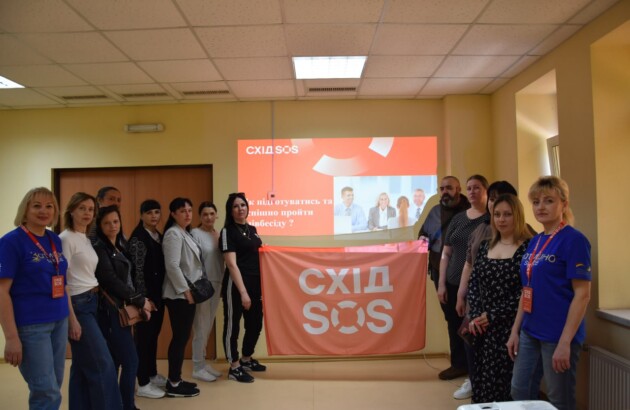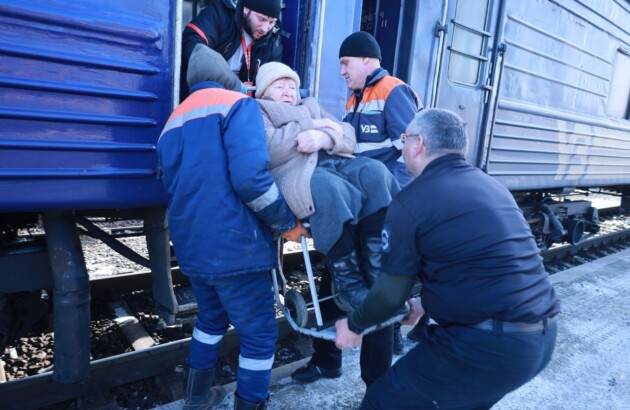(Un)temporary Accommodation: Yaroslav Taranets, Senior Lawyer at East SOS, on Housing Challenges for IDPs in Tribun

When russia launched its full-scale invasion of Ukraine, millions of people were forced to flee their homes, hoping to return quickly. Yet for many, “temporary” accommodation has stretched into years. Modular houses, dormitories, and other shelters have turned into long-term homes—often with living conditions that fall short of even basic standards. Those with at least some savings try to rent, but often face inflated prices, a lack of formal contracts, and constant uncertainty about whether they will have a roof over their heads tomorrow.
Government programs for compensation, rebuilding destroyed homes, and preferential mortgages exist on paper, yet thousands of internally displaced people (IDPs) cannot access them due to bureaucratic obstacles, gaps in legislation, and insufficient funding.
Yaroslav Taranets, Senior Lawyer at East SOS, spoke about the key challenges of temporary housing, compensation, and credit and investment mechanisms for IDPs and the problems they face in practice.
Read key takeaways from the article below:
Key challenges of temporary housing
- It will never be enough to cover the needs of all displaced people;
- Someone always has to maintain it, which requires stable resources.
“Most of the temporary housing is provided through international and national NGOs. Communities often lack the financial and human resources to implement such programs on their own, so they are forced to seek new partnerships with the public sector,” explained Yaroslav.
Funding
Yaroslav Taranets also highlighted that the approach to funding temporary accommodation varies depending on the responsible party:
- NGO-managed accommodation: When national or international NGOs manage temporary housing, sustainable funding typically lasts around three years. During this period, even the most capable donors may eventually shift their priorities, with the expectation that residents should integrate into the host community and find permanent housing.
- Locally funded accommodation: For temporary accommodation financed from local budgets, the law provides for free housing. However, local authorities are not always able to fully cover these costs. “We have documented cases where IDPs are forced to pay for accommodation, utilities, and other essential services,” noted Taranets.
Compensation
A mechanism exists to compensate for utilities consumed during IDP accommodation. However, its implementation is often challenging. Compensation is usually paid with a delay of 2–3 months, and the responsible authorities do not always accept submitted documents.
Alternative Options
According to Yaroslav Taranets, there are alternative mechanisms for individuals with a stable and sufficient income. The state has introduced several effective credit and investment programs that allow IDPs to purchase housing through a mortgage:
- The “eOselia” State Program;
- IDP Loan Program with Grant Funds from the German Government – provided through the German development bank KFW.
eRecovery Program
The eRecovery program provides housing certificates to individuals whose homes have been officially inspected and recorded as destroyed. However, according to Yaroslav Taranets, there are cases where residents from frontline areas cannot obtain these certificates because inspection commissions are unable to visit the properties and issue the necessary reports due to ongoing hostilities.
Currently, the program only benefits citizens whose housing has been destroyed or damaged in government-controlled territory since 2022.
“Regarding inspections, alternative approaches have been proposed. For example, the fact of destruction could potentially be established using photo and video evidence, but this solution remains at the level of a legislative initiative,” said Taranets.
Rental Housing for IDPs
The Ministry of Social Policy has launched a pilot program to provide rental subsidies for IDP families with limited income. The subsidy amount is calculated based on the family’s total income. However, to receive support, a lease agreement must be signed and submitted to the Pension Fund. In practice, many landlords are reluctant to register such agreements officially, as they do not want to declare commercial activity to the state.
Lack of Long-Term Strategy
The broader problem of long-term housing solutions for IDPs and a compensation mechanism for residents of temporarily occupied territories (TOT) remains unresolved. For years, Ukrainians displaced from these areas have lived in uncertainty. Without permanent housing, they often cannot integrate into host communities, and many are forced to return to frontline areas, putting themselves and their families at serious risk.
For more details, read the full article on Tribun.
In August, the East SOS Charity Foundation donated construction materials worth over UAH 110,000 for residents of the Kupiansk community.


